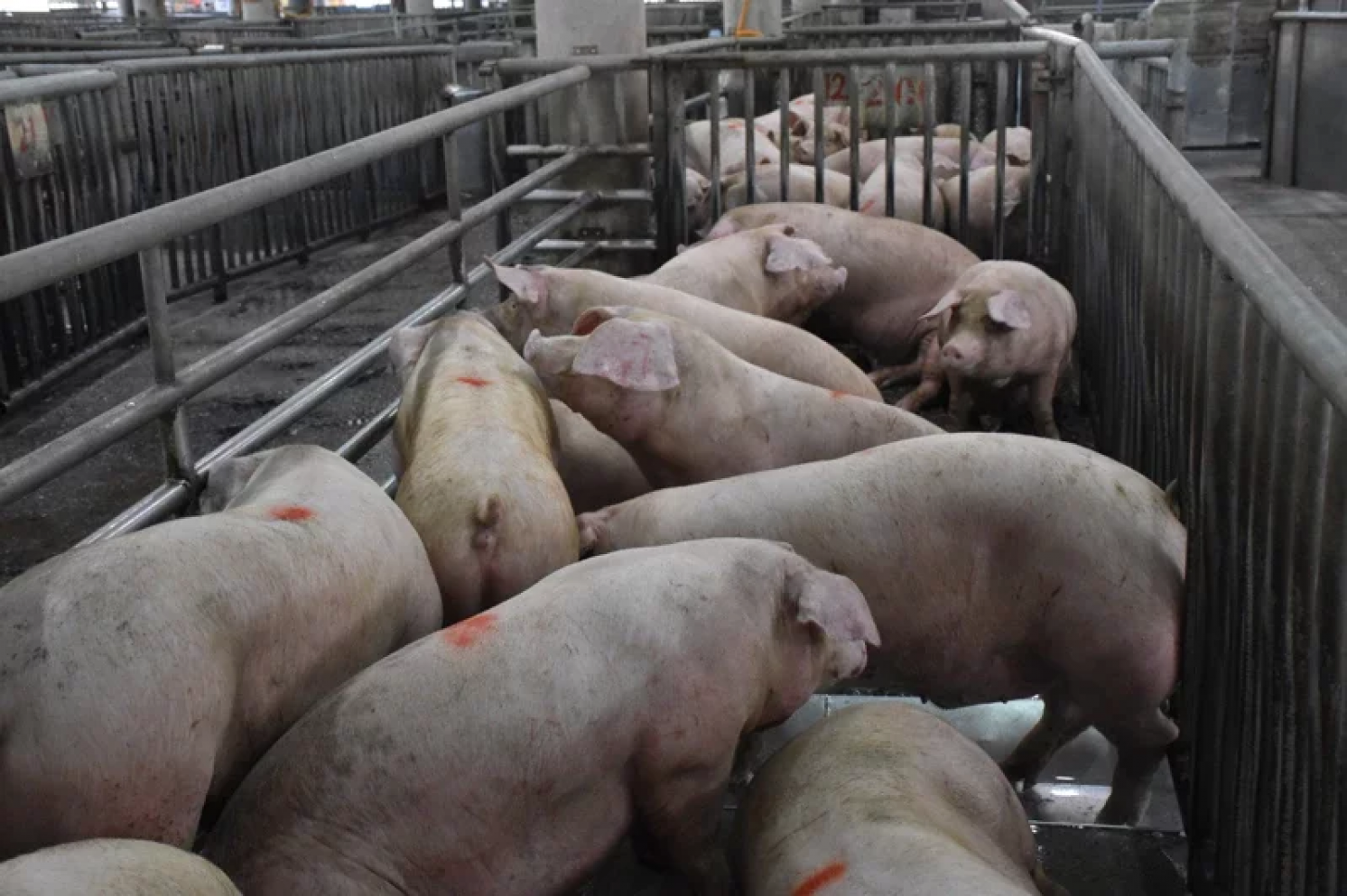
China Can Import Ractopamine-Free U.S. Pork, Why Can't Taiwan?
United Daily News Editorial, September 3, 2020
Among the arguments of imported pork from the United States over the impact to public health and local pork farmers, there is one overlooked fact worth our concern. That is, in recent two years there are more and more pork farmers in the United States have stopped using ractopamine as the additive to feed its livestock, the ratio is now over 62 percent. If ractopamine-free has become the mainstream of pig-raising industry in the United States, Taiwan certainly may open market for U.S. pork under the condition of pork-meat without ractopamine. With this understanding in mind, the general public may have a new mindset to discuss issues related to the import of American pork.
Ironically, the main reason that made American pig farmers stop using ractopamine was by the pressure of huge market demand of mainland China. The African Swine Fever infected China in 2018, and it shortly spread to many provinces, thus made a huge shortage of pork supply for the Chinese market. The pork-meat industries in the United States noticed this business opportunity, but realized that mainland China has banned ractopamine as an additive. Therefore, the U.S. pork industry greatly changed its method of pig-feeding and requested contract pig-raising farms to stop using ractopamine as an additive, in order to fit the import regulations of mainland China.
The ractopamine-free movement was initiated in 2018 by the Smithfield Foods, the largest share of pork supplier in the United States, located in Virginia which has been merged in 2013 with a Chinese Company, WH Group. Also, in the same year 2018, JBS USA, the third largest share of pork supplier in the United States and a leading processor of fresh beef and pork, announced to stop using ractopamine. Last year, 2019, the second largest pork supplier Tyson Foods announced that it would join the ractopamine-free movement, and stopped using ractopamine in all meat products. In April this year, the fifth largest meat supplier Hormel also joined the move. Combine with the above four pork suppliers, it takes 62 percent of total American pork products.
All these changes have explained two simple facts. First, there are two categories of U.S. pork: pork with ractopamine, and pork without ractopamine which takes larger share in the food market now. We don’t need to assume that American pork products are unhealthy and ban all U.S. pork from importing, yet neither need we open our market indiscriminately to U.S. pork. Second, American meat processors can, and should, prioritize the consumers’ demand, as to take initiatives to change the recipe of pig-feeding, instead of manipulating power to force small countries’ consumers to accept, and eat unhealthy foods.
Over the recent two years, President Donald Trump of the United States has ignited trade war with China, yet at the same time America’s meat market had been changing quietly. The meat manufacturers have taken initiatives to adjust their feed recipe in order to fit the import regulations of mainland China. Such a change has not only satisfied the need of the Chinese market, but also alleviated the U.S.-China trade deficits. That is a true “change of time and situation”. The ruling Democratic Progressive Party (DPP) was a strong opponent against the import of U.S. pork with ractopamine additive when it was in opposition. Now in power, it intends to open the door for the pork with ractopamine. What they have said and done were contradictory, and its mentality and logic is still framed inside the old-time mindset.
Shortly after President Tsai Ing-wen announced to open U.S. pork, Spokesman Ma Xiaoguang of China’s Taiwan Affairs Office, State Council, criticized that it was “detrimental to the health of people in Taiwan”. The DPP Legislator Wang Ting-yu rebutted: “Just one week ago China has imported more than 3,000 tons of U.S. pork, how can the Chinese government criticize Taiwan?” It is obvious that Legislator Wang failed to recognize the fact that American pork imported to mainland China has been ractopamine-free. The government in Taiwan has announced to indiscriminately open the door for the U.S. pork with ractopamine additive while currently Ministry of Agriculture still bans the using of ractopamine to local pig farmers. What a disgraceful double standard.
Globally, there are more than 160 countries now banning the use of ractopamine as a livestock additive. This fact shows that the whole world view ractopamine harmful to human health. The Tsai administration has criticized that China neglects human rights, yet Beijing under America’s tremendous trade pressure still insisted on detection of zero residual ractopamine and urged the American meat industry to adjust feed recipes, banning the use of ractopamine as an additive. Even only on this issue, the DPP administration yielded to foreign pressure and abandoned its former commitment to safeguard the public health. How can Tsai administration officials brag that they are the guardians of human rights?
In a broader view point, if opening Taiwan’s markets to American pork is conducive to negotiating a U.S.-Taiwan bilateral trade agreement, and the U.S. pork market are moving to the mainstream of ractopamine-free feeding method, under such a situation, the government of Taiwan need not designate U.S. pork as “contaminated pork” but simply to distinguish the “pork with ractopamine” and “ractopamine-free pork” so as to open the door only for healthy ractopamine-free pork. Doing so, the DPP administration may alleviate general public’s doubt and anger, and to fulfill its former commitments to safeguard people’s health, instead of repeating irrational advocacy for its ractopamine policy.
While mainland China can import ractopamine-free U.S. pork, and Taiwan cannot, the Tsai administration can hardly convince the general public on this U.S. pork issue. Government ministers may save their time chanting slogans but to think seriously how to negotiate with United States to import healthy American pork.